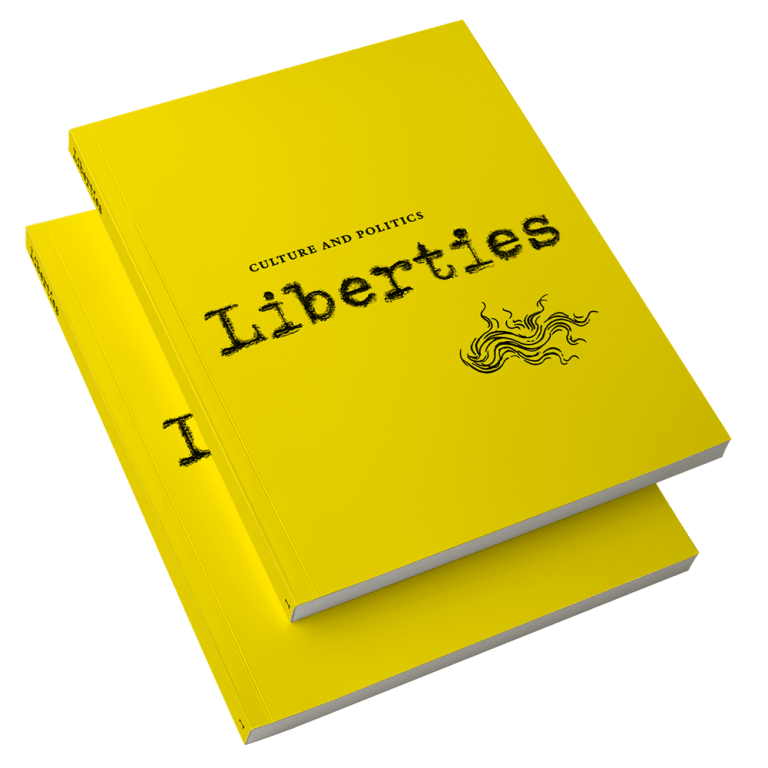I post infrequently. If you would like to be alerted whenever I do post use the sign up form at the bottom of this page.
I believe that challenging reading is good for you. If you think the same then Liberties might be up your alley. Decidedly highbrow, the quarterly is filled with essays, literary and film criticism, history, and even poetry from a Nobel Laureate. It bills itself as a new journal of Culture and Politics. Clocking in at 417 pages you might think it impossible to get through but thankfully that isn’t the case.
As a physical object it is impressive. It looks and feels serious but approachable. It is physically smaller than I anticipated and I think that is why the length is so long. With top notch book design the journal itself gets out of your way and allows you to concentrate on the subject matter.
Because these are unrelated essays you can comfortably read it in fits and starts. I found myself reading between a half and one full essay on the nights I was in the mood for it. It really didn’t take me very long to get through the entire thing.
So what’s it about? The last essay (and one of the few available online) outlines the point of the enterprise. I wish it was at the beginning in order to set the stage but I think it was a good editorial decision to put it last. It is dense and difficult to excerpt but I think the crux is this:
This journal begins its life in a time of breakdown and bewilderment, of arousal and expectancy. It is called Liberties because of all the splendid echoes of the word – liberty, liberal, liberate, liberality, even libertarian, even libertine. (The question of the place of pleasure in human life is one of the fundamental questions.) It is both a grave word and a joyous word. The plural is a tribute to the plurality of freedoms that we enjoy as a matter of right, and also to the plurality of freedoms that the citizens of a growing number of countries are being ruthlessly denied. Above all, it is meant to announce that, in this universe of fascists and commissars, the objective of these pages will be, by argument and by example, in politics and in culture, the rehabilitation of liberalism.
I find this refreshing, liberalism is being attacked from all sides and it is good to be reminded what it is and entails. The essays all orbit around this central concept while rarely addressing it directly.
My favorite chapters include:
- A rumination on how the nature of transgression has changed in today’s culture
- A quick history lesson on the founding principles of Indian democracy and how Modi is eroding them
- A first person view of the horrors of the opioid epidemic
- A heterodox vision on the nature of addiction
- A translated excerpt on the nature of hate from the memoirs of a man imprisioned first by the nazis and then the soviets, sadly still very relevant
- An appreciation of the writing and life of James Baldwin (I’m ashamed to admit I have not read any of his stuff but hope to soon)
And there’s much more. There were only a few things that didn’t interest me and only one that I thought wasn’t written very well. To be fair I don’t think they are a native English writer but it was still tough to get through.
Highly recommended if you’re into this kind of thing and I’m looking forward to the next issue.
